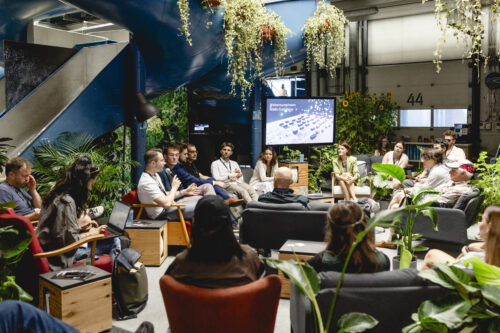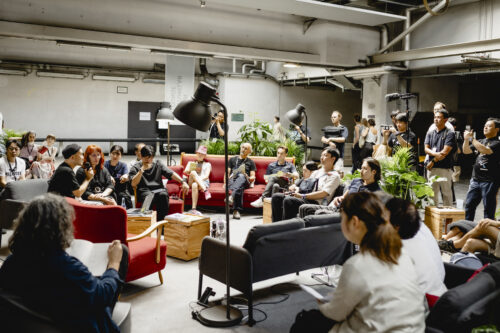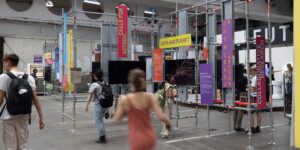Johannes Pöll
-

Converge 2
Avatars in Dialogue and Motion
Converge 2 is an interactive work by the Ars Electronica Futurelab for Deep Space 8K. Up to eight participants on site and one external person in a motion capture suit engage through voice, movement, and emerging tech. The project is based on SHARESPACE, a large European R&D project on using avatars in social situations.
-
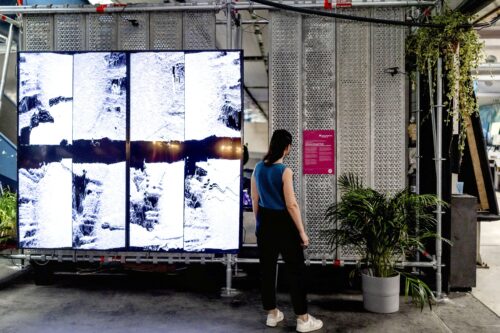
Inference Ground Truth
Human Experience and Machinic Reality
Inference Ground Truth explores how machines and humans perceive and record reality. Modern philosophy tells us that true objectivity is impossible. Today’s culture and media often compare personal impressions of shared moments. But even what we seem to agree on is filtered through human perception. This project is a reminder of that deep subjectivity.
-
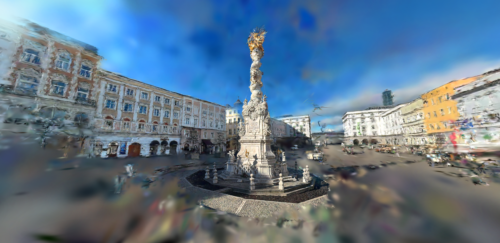
Beyond Curiosity
Explore the City with Gaussian Splatting
Beyond Curiosity is a participatory virtual tour of UNESCO City of Media Arts Linz that employs cutting-edge 3D Gaussian Splatting. The key highlight: visitors and residents of Linz can utilize the technology to explore the city in a new way and share their perspectives with the world.
-
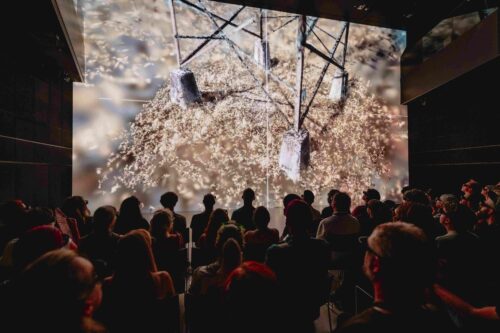
Persistent Time Sink Resonance
Reality Volumes through Rasterization
Persistent Time Sink Resonance is an artistic exploration of reality volumes utilizing 3D Gaussian Splatting. This recent rasterization technique supports the digital, spatial reconstruction of real-life objects or even our surroundings in the computer.
-
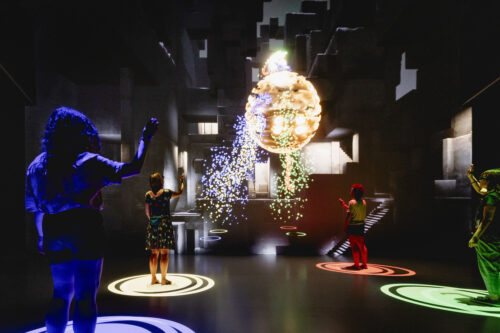
*falcon heavy
Audiovisual multi-user artwork
*falcon heavy is a multi-user experience and stereoscopic audiovisual sculpture for Deep Space 8K, generated in real-time. An ever-shifting entity rules the ritualistic semi-virtual arena; populated by people participating together to find synchronous signals in all the noise.
-
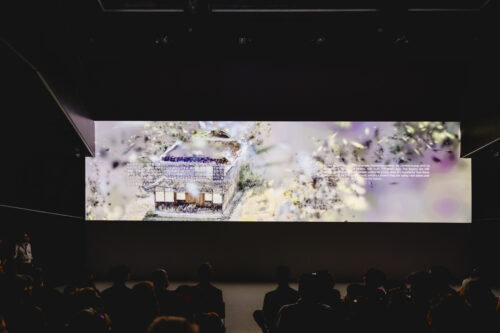
Memories for Futures
Participative Installation for Rural Life
Memories for Futures is a multi-modal media arts installation designed to foster care and discussion about rural life’s future. Local stories, places and impressions from the village of Azusakawachi in the Japanese prefecture of Shiga are linked here to provide insights into the lives of the inhabitants and their very personal history.
-
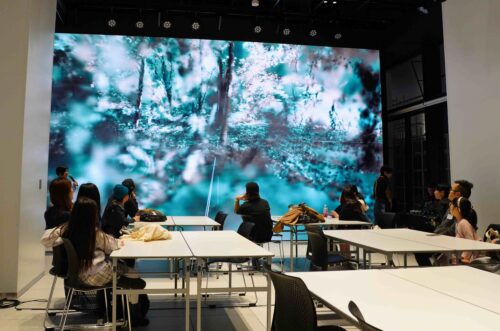
Art for Transformation
Collective Creativity for Tokyo’s Future
Visitors were invited to a three-day series of activities in Tokyo in November 2024 under the motto Art for Transformation, highlighting the transformative potential of public engagement, creativity, and technological exploration.
-
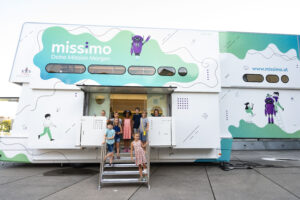
missimo
Mobile STEAM Learning for Kids
missimo is a project for children aged eight to ten that offers many experiments on topics such as AI, robotics, and programming. The special appeal: missimo visits primary schools in Austria’s rural areas by truck.
-

Faust VR
Virtual Dive into Theater History
The virtual reality application Faust VR combines a digital recreation of the famous “Faust” production by Max Reinhardt from the 1930s with a specially created dramaturgy: It leads visitors through the formative elements of the play in the unique “Faust town”.
